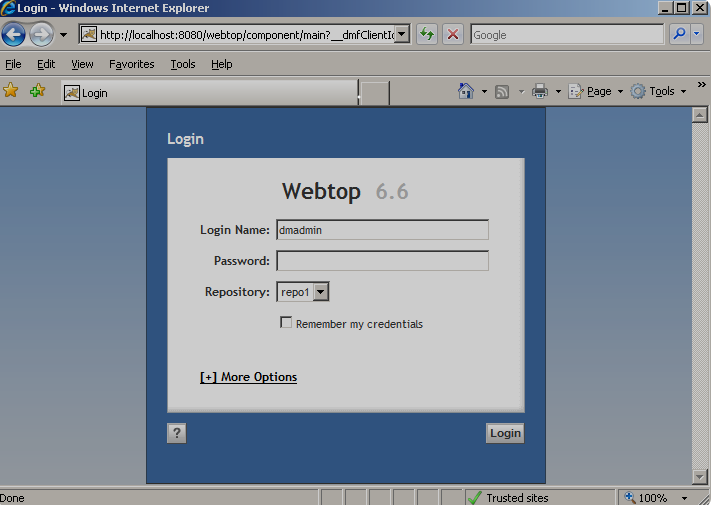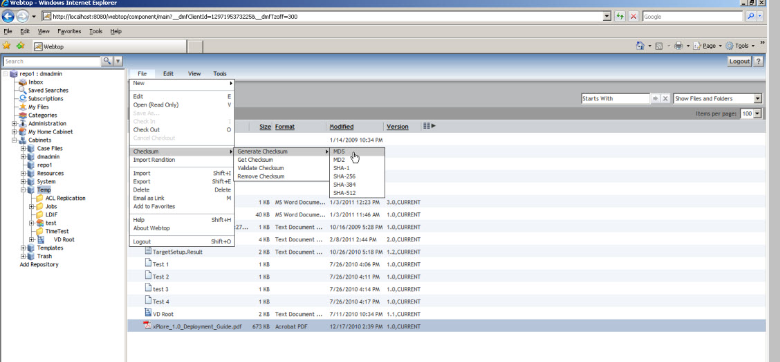Webtop is a web-based client interface for Documentum, a content management platform by OpenText. It provides users with a comprehensive set of tools to access, manage, and collaborate on content stored within the Documentum repository. Webtop’s user-friendly interface is designed to facilitate a wide range of document and content management activities directly from a web browser, making it accessible from virtually any location.

Here are some key features and aspects of Documentum Webtop:
Key Features of Webtop:
- User Interface:
- Graphical Interface: Webtop features a graphical user interface that resembles traditional desktop applications, providing a familiar environment for users.
- Customizable Layouts: Users can customize their workspace to suit their individual needs and preferences, enhancing productivity and user experience.
- Document Management:
- Full Document Lifecycle Management: From creation to archiving, Webtop facilitates the complete lifecycle management of documents, including version control, check-in/check-out, and lifecycle states.
- Advanced Search: Users can perform sophisticated searches using metadata or full-text search, making it easy to locate documents quickly.
- Integration:
- Support for Multiple Content Types: Webtop can handle various content types, including documents, images, and multimedia files.
- Integration with Other Applications: It can be integrated with third-party applications and systems, enhancing workflow and data consistency across platforms.
- Collaboration:
- Collaborative Tools: It includes features such as discussions, annotations, and task management to facilitate collaboration among users.
- Access Control: Robust security and access control mechanisms ensure that only authorized personnel can access sensitive information.
- Compliance and Security:
- Audit Trails: Webtop provides detailed audit trails, tracking every action performed on documents, which is crucial for compliance and security.
- Records Management: It supports comprehensive records management capabilities that comply with regulatory requirements.
- Workflow:
- Workflow Management: Users can design, monitor, and participate in workflows directly from the Webtop interface, streamlining business processes and improving efficiency.
- Automated Processes: Webtop can automate routine tasks, reducing manual work and increasing accuracy.
Use Cases:
Webtop is widely used across various industries, particularly where document security, compliance, and efficient content management are critical. This includes sectors like government, healthcare, finance, and legal industries.
Advantages:
- Accessibility: Being web-based, it is accessible from any computer with internet access, facilitating remote work and real-time collaboration.
- Consolidation: It offers a consolidated view of all enterprise content, regardless of where it is stored.
- Reduced IT Overhead: As a web-based application, Webtop reduces the need for client-side installations and maintenance, lowering IT overhead.
Disadvantages:
- Performance: Depending on network conditions, the performance of web-based applications like Webtop can be less responsive compared to local applications.
- Browser Dependency: Being web-based, its performance and functionality might vary across different web browsers.
Documentum Webtop has been a cornerstone of Documentum’s ECM offerings, providing robust content management capabilities with the flexibility and accessibility of a web-based interface.

